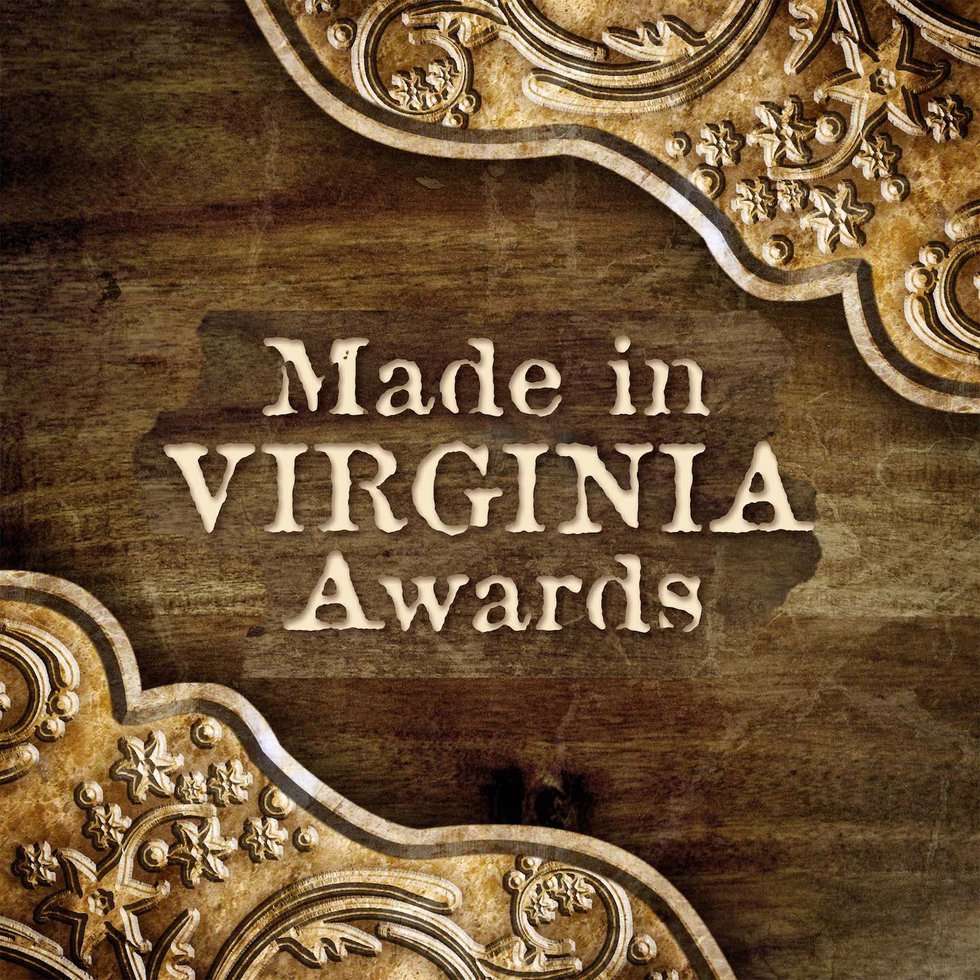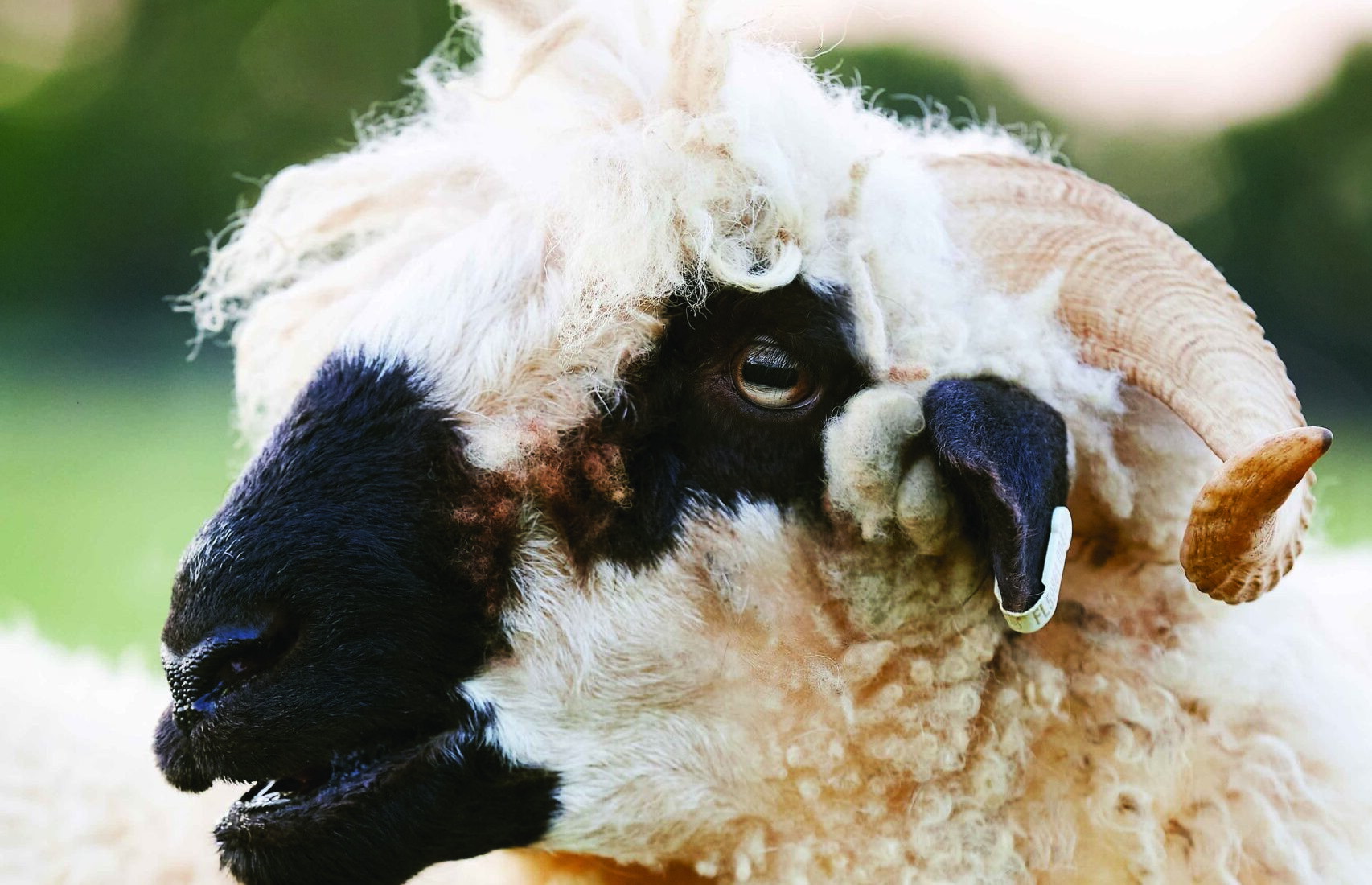First annual made in Virginia awards (2012).

15 of our favorite products, in the categories of sport, food, fashion, drink, and home, made right here in the Old Dominion by Virginians whose attention to detail and artistry remind us that craftsmanship and quality really do matter.
Six-Eleven Bicycle Co. (Roanoke)
In a downtown roanoke basement, in what was once a harley-davidson motorcycle repair shop along Campbell Avenue, the affable Aaron Dykstra builds bicycles for any custom cruiser—from the 6-foot-7-inch teacher who just couldn’t find a comfortable ride, to the serious cyclist wanting to tackle long distances. He is a tailor for two wheels building bespoke bike frames to fit you.

Aaron Dykstra 611 Bicycle Co.
Dykstra, 29, grew up listening to the romantic narratives of mountains and quaint villages told by his late grandparents, who toured Europe by bicycle just after World War II. That inspired Dykstra to take a job in a bike shop in Roanoke as a teenager. Joining the U.S. Air Force at age 17, Dykstra was eventually deployed to the Middle East, where he sketched out bike-frame designs on paper. “Working with fighter jets all day really motivated the mechanical side of my brain,” he says.
When his enlistment was up, Dykstra headed to Brooklyn, New York, where he took a job as a mechanic at a small, but busy, bike shop, commuting to work on two wheels. Then it was off to Chicago, where he worked for a cycling advocacy group. This was followed by a stint on a bicycle racing team.
In 2008, Dykstra and his wife, Michelle Davis—also of Roanoke and an accomplished cyclist herself—returned to Roanoke, and that’s when Six-Eleven Bicycle Co. was born in the basement of the couple’s Grandin Village home. About that same time, Dykstra spent several weeks in Colorado studying the art of frame building under master Japanese builder Koichi Yamaguchi. “The minute I picked up the torch,” Dykstra says, “I knew I had made the right decision.”
Today, that dream continues. Dykstra spends long days and about half the night at his well-organized shop, often putting off dinner until 10 p.m., while customers wait as much as a year for him to invest 100 hours or more on each steel bike.
Dykstra stamps every two-wheeled treasure with a circular seal of the ROANOKE SHOP, modeled after the name plate that also provides the inspiration for the couple’s business name: the No. 611 J Class steam locomotive, a masterpiece made in Roanoke in 1950 and admired by the Dykstras for its craftsmanship and streamline styling. “Roanoke is a manufacturing town,” Michelle says, “and we wanted to make sure that people knew that was a part of our identity as well, not just our bikes, but Roanoke as a whole.” Frames cost about $2,100. SixElevenBicycleCo.com
Lowell Haarer Flintlock Rifles (Linville)
Entering Lowell Haarer’s workshop in Linville, where a coalfired forge purrs as it heats metal to a red glow, is like stepping back into the 1700s. He carefully pulls out the hot metal, delicately hammers out an imperfection and then places it back into the forge. It is exacting work to produce just one part of the firing mechanism for the custom-made flintlock rifles he has been building since 1985.

Muzzleloaders
Wooden blocks of cherry, walnut or curly maple that he will later sculpt into rifle stocks are stacked neatly off to the side of the shop. On Haarer’s worktable lays a long wooden forend—a length of wood Haarer has hewn to 1/16 of an inch thick, which will fit beneath the long flintlock barrel.
Haarer, a Mennonite minister, chisels and carves by hand intricate scrollwork on both the metal and wooden parts of the flintlock. The same care goes into every gun he crafts, but no two guns are alike.
It takes more than 150 hours to create a piece of Lowell’s “working art,” which appeals to blackpowder hunters as well as living history reenactors. A basic flintlock starts at $1,875. LowellHaarer.com
Release Feels (Reedville)
Since 1607, fishing has been an important part of life for Virginians—first for survival, then for commerce and pleasure. So it makes perfect sense that Wes Seigler, founder and president of Release Reels, along with his partner Kenneth Nance, would set up their fishing reel manufacturing plant near the shores of the Chesapeake Bay in Reedville.
Seigler believes that by crafting his reels in the United States he can personally assure their quality and precision, which exceed the standards of foreign manufacturers. He is so confident in his product that he offers a lifetime guarantee: “We pride ourselves in providing a lifetime of service and keeping our customers on the water fishing,” he says.
Seigler and Nance designed the handles of their reels to fit better, thereby converting the torque or strain from the hand to the reel. Their reels also include a larger thrust bearing to better handle the strain of the drag. Their patents have been proven on the water, not just in a laboratory. “We have the lightest, most powerful and most capacity of any reel in its class,” says Seigler. From $249 to $549. ReleaseReels.com
Leaping Waters Farm Geese (Allegheny Springs)
Founded in 2004 by Alec and Sarah Bradford, Leaping Waters Farm—a 110-acre spread in Montgomery County just across a low-water bridge from the former site of the Allegheny Springs resort–has been the go-to source for chefs and home cooks looking for meat raised in fields and forests the way Appalachian farmers used to raise it.
At Leaping Waters, flocks of fowl and herds of livestock (including the Ancient White Park cattle once hunted by the British royal family), heirloom turkeys and Large Black hogs wander the farm’s fields, which are protected by patrolling Great Pyrenees. This year, four breeds of geese have taken up residence on the farm, and we’re betting the Bradfords’ new offering will be a hit.
Sarah, a practicing obstetrician, and Alec, who manages the farm with help from their four children, point out that hunters and their relatives may be familiar with wild geese, but wild geese don’t taste—or cook—like farm-raised birds. “The mistake a lot of people make is they take their fattened goose and stick it in the oven without doing something about the fat that lies under the skin,” Alec says. “The fat renders inside the bird, and then drips to the bottom of the oven; the kitchen fills with smoke, and it’s generally regarded as the worst Christmas dinner ever.”
But, says Alec, “We’re hoping that if we can do a few hundred this year and market them well, there might be a little bit of a comeback for the goose in Virginia, or at least locally.”
The Bradfords have recruited regular customer Adam Sobel, executive chef at Bourbon Steak in Georgetown, to teach the members of their CSA (a subscription-based group that receives weekly offerings from their farm) how to properly cook a goose. A video of the demonstration will be posted on their website. “What I’m hoping he’ll do is remove some of the fat beforehand, so he can use the goose fat as a confit,” says Alec. “Duck and goose fat are rather wonderful.”
The birds, which are expected to weigh from eight to 15 pounds, will cost $9 per pound, plus shipping. LeapingWatersFarm.com

leaping waters farm
Gearharts Chocolates (Richmond & Charlottesville)
Gearhart’s artisanal chocolates are handcrafted to be as pleasing to the eye as they are to the palate. Chocolates paired with a dusting of ancho chile powder, the essence of Earl Grey tea or a scant dash of ginger or cardamom are delicious and beautiful; each one a work of art, some hand-swirled, some colorfully imprinted, as designed by owner Tim Gearhart, a Culinary Institute of America (Hyde Park)-trained pastry chef.

Gearhart says he is partial to his malted milk hazelnut (whipped Gianduja malted milk and a toasted hazelnut, dipped in milk chocolate). We also love the Kauai (toasted coconut, dark rum, and white chocolate ganache with a roasted macadamia nut, wrapped in milk chocolate). With shops in Charlottesville and Richmond, Gearharts sells approximately 1,000 pieces of chocolate a day, except at Christmas and Valentine’s Day, when sales soar to as many as 8,000 pieces a day. $25 for the 16-piece sampler, which contains one of each of the chocolatier’s creations. GearhartsChocolates.com
Hubs Sweet Heat (Sedley)

If it weren’t for Hubs Virginia Peanuts, tiny Sedley—home to the Hubbard Peanut Company—probably wouldn’t be on the map. Since 1954, the Hubbard family has used the same secret recipe to create the very popular Hubs (the ONLY peanuts sold at the Country Club of Virginia). Anyone who has ever eaten these darlings of Virginia agriculture knows they crunch like no other and they aren’t greasy like competitors. The process was developed by matriarch Dot Hubbard more than half-a-century ago. All the Hubbards will allow is that ingredients are natural, and the peanuts are from the top one percent of the crop.
This year, the Hubbards introduced Sweet Heat, Hubs that are seasoned to be slightly sweet and mildly spicy. And they’re yummy. This is a company that is true to its history yet unafraid to challenge itself and its followers. Around $20 for a 20-ounce tin, including shipping and handling. HubsPeanuts.com
Pinnell Custom Leather (Crozet)
Chuck Pinnell discovered his true calling in a Colorado Sp rings moccasin shop in 1974 when he was 18 years old. “I stitched a two-inch strip of leather and knew that I had found my life’s work,” he says.
When he returned home to Newport News, Pinnell applied to be a shoemaker in Colonial Williamsburg and, as luck would have it, was hired as an apprentice in the harness shop where he soon gained a reputation for his artistry.
He opened Pinnell Custom Leather in 1977 and four years later relocated his shop to an old apple packing warehouse in the foothills of the Blue Ridge in Crozet. He has since built a following for his stunning custom leathers, quality craftsmanship and personable customer service.
At first, Pinnell focused on custom leather goods for equestrians, such as chaps, belts, and bags. Over the years, he has added handbags, cuff bracelets and wristlets, watchbands, wallets, and sporting accessories like shotgun sleeves, double speed bags, fast loader shell bags, field boxes, and holsters.
But Pinnell’s work has transcended the sporting niche, and he has crafted leather goods for customers all over the world, including Olympians, politicians, actors, directors and even royalty. He also hand-forges buckles, designed and fabricated in-house in gold, silver and brass, and often incorporates gemstones like the emerald eyes set in a silver fox’s head.
“I love working with a customer,” says Pinnell. “They come to me with an idea. We sit down and talk through the design process. I draw a sketch, and they pick their leathers, findings and other details.” A sketch can morph into a $30,000 handbag created from American alligator and handmade silver fittings. Prices on custom designs vary depending on the materials and the detailing.
Above all, Pinnell values his relationships with customers. “I don’t have a favorite thing to make,” he says. “Who I’m making it for makes it special, and what it means to them makes it all worthwhile.” Prices range from $65 for a leather cuff to $500 for a calfksin belt with sterling silver buckle, and handbags start around $1,200. PinnellCustomLeather.com

Chamblin Design Jewelry (Richmond)
“A design can take days to weeks to go from conception to fruition,” says gemologist Marie Chamblin Dirom, who started her fine jewelry business, Chamblin Design, in 1993. “Midnight daydreaming, sketching, arranging and balancing of metal and stones, experiments with torch and tools at the workbench are all a part of the process.”

Glittering inside cases lining Dirom’s workshop and showroom in Richmond’s historic Fan District are necklaces, earrings, and bracelets made with a rich, sandblasted 18-karat yellow gold featuring cognac diamonds, green garnets from Mali and opaque South Sea pearls among many other tastefully exotic gemstones. The effect is mesmerizing.
Though many of her designs have stood the test of time, Dirom’s hammered diamond bangle in particular, she says, has become a mainstay in her collection. “Many of my clients wear at least one all the time,” explains Dirom, who earned her BFA in fine craft from Virginia Commonwealth University and a graduate gemologist degree from the Gemological Institute of America. The delicate .75-carat diamonds in the stackable bracelet are ideal cut and priced at $4,200 individually or $12,000 for three. ChamblinDesign.com
Ignatius Hats (Petersburg)
Stir in a bit of whimsy, add a dollop of creative flair, blend together with uncompromising technical expertise and you’ve got … a hat, and a piece of art.
That’s part of the formula that has made Ignatius Hats of Petersburg synonymous with fine millinery. One of the latest creations from partners Ignatius Creegan and Rod Givens is a hat they have dubbed “The Turkish Knot,” a tiered flight of fancy that comes together brilliantly with an eye-catching knot.

Like many of the milliners’ handmade, original and often one-of-a-kind hats, the Turkish Knot begins as hand-braided wheat straw strands. Ignatius sews the braid into a hat body on an antique straw-sewing machine—the machines stopped being made in the 1940s—and then it is steamed and pressed into shape. The hat is finished with wire and ribbon belting, and the knot is draped into a harmonious shape.
Of his inspiration, says Creegan, “You generally don’t have an idea and make a hat. You develop the idea through a lot of hats.”
The Turkish Knot is $230. Prices for other chapeaux range from $185 to $310. IgnatiusHats.com
Wasmund’s Single Malt Whiskey (Sperryville)
“Our prod uct is all Virginia-Made,” Ri ck Wasmund says of the unique whiskies that he and his six employees brew at the Copper Fox Distillery, situated two miles from Shenandoah National Park in Sperryville.
Wasmund, 53, explains that the strain of barley he uses was developed at Virginia Tech’s seed development farm and is grown by a Northern Neck farmer. “We harvest the local apple and cherry trees. And the barrels we use are old Virginia Gentleman barrels. So it’s that much of a spirit of Virginia.”

More than a decade ago, the former insurance agent had the bright idea of using smoked fruit trees to flavor whisky. “Most malt in the U.S. is not smoked,” he says. “I went over to Scotland and did an internship and learned how to make whisky there.” Armed with the basics, he began experimenting—not only using smoked applewood on the front end of the process but aging the whisky with it when it’s barreled.
The result is Wasmund’s Single Malt, which is now available in 20 states, including all ABC stores in Virginia; 15% of their output goes to discerning sippers overseas. “The fact that we malt our own barley is unique in North America,” he points out. “It’s very labor intensive; Jim Beam, Wild Turkey and others buy their malt from big commercial maltsters.”
Visitors who take tours of the distillery—an 8,000-square-foot barn that used to be an apple juice plant—are treated to a pleasant aroma and much activity. One side of the building makes up the malting area where a large section of the floor is reserved for spreading out watered-down barley, which is regularly raked to allow the starch to turn into sugar. “The production area where we cook, with the stills and the fermentation, is on the other side, and that carries into our bottling and barreling room…so it’s all one big line.”
Wasmund recently bought the building next door to expand production. A few years ago, Copper Fox also began making a special blend of rye that has since earned a first place prize from the Beverage Tasting Institute. “It’s the only rye that has that smoked component,” he says with pride. Wasmund’s whiskies retail for around $36 a bottle. CopperFox.biz
Legend Brewery Brown Ale (Richmond)
Virginia is not just for oenophiles. Increasingly, it’s fo r beer connoisseurs, too. Get your microbrew fix at Legend Brewing Co., where all beers are unpasteurized and crafted exclusively from two-row and specialty barley, malt, hops, water, and yeast. Owner Tom Martin founded the brewery in 1993 because he wanted to make craft brew beers in the traditional European style. Now Legend houses 30 barrels and 47 active tanks. Meanwhile, the pub in Richmond’s Manchester district can seat nearly 400. It also provides premium beers to restaurants all over the state, including Capital Ale House and Tobacco Company, both in Richmond, Virtue Feed & Grain in Alexandria, and Byers Street Bistro in Staunton.

Legend offers the same six beers year-round, along with seasonal specialties. Their standout beer, however, is Brown Ale—a fullbodied, mahogany, British-style brew that is also their most popular, comprising half of all of Legend’s sales. Brown Ale balances the flavors of sweet caramel, coffee, molasses, and toasted nuts over fruity undertones.
“I’d always been a Newcastle man,” says Dave Gott, Legend’s vice president of operations, “but when I first tried Brown Ale in 1994, I was excited about getting something of that same quality right here in Virginia.” Brown Ale is available in 22-ounce bottles for $4.50, six-packs for $8.99, and 12-packs for $12.99. LegendBrewing.com
Foggy Ridge Cider (Dugspur)
In 1997, Diane Flynt left her career as a banking executive and moved some 3,000 feet up the Blue Ridge Mountains to the town of Dugspur. Her plan? To grow apples. Today, her company, Foggy Ridge Cider, is selling to hundreds of restaurants, wine stores, gourmet shops and high-end grocery stores around the state.

FRC_1.14.11 157
The secret is that Flynt selects her Foggy Ridge fruit with the same care a vintner gives to her grapes. “About a third of the apples we grow here aren’t even edible,” says Flynt, 59. “There’s too much tannin or acidity.” But those apples are perfect for blending into full-flavored, fresh, crisp, hard ciders of which Foggy Ridge currently produces four varieties—including First Fruit, made with Thomas Jefferson’s favorite Virginia heirloom apple, the Hewe’s Crab—as well as two types of apple port.
Weekend visitors to Dugspur can sample the fruit of Flynt’s work in the Foggy Ridge tasting room from March through December. Plenty of Blue Ridge tourists do, and Flynt happily converts them into cider aficionados. “People might buy my cider once because they know Thomas Jefferson drank it,” she says. “But they buy it a second time because it’s delicious.” $16 a bottle. FoggyRidgeCider.com
fineCONCRETE by elbwrm (Charlottesville)
If you think sidewalk when you hear concrete, Charlottesville’s fineCONCRETE by elbwrm will surprise you both in its peculiar moniker and in the extraordinary residential and commercial custom concrete furniture and surfaces they produce.
Run by partners Alexander Kitchin and Nicole Sherman, fineCONCRETE is one facet of elbwrm, a design, research and fabrication studio, which occupies a basement atelier on Charlottesville’s Downtown Mall. The pair craft pieces with curves and shapes that would be impossible with any other material. Because concrete is cast, it’s incredibly versatile, and ideal for bathtubs and sinks since it needs no joints or seams.

“What we like about concrete is the spatial and tactile qualities that make it seductive and timeless,” says Kitchin, “but also that the making of it embraces natural materials, cutting-edge chemistry, and both the handmade and digital fabrication. We like to think of our studio as where the artist meets the scientist.”
A graduate of UVA and Southern California Institute of Architecture’s (SCI-Arc) graduate program and currently an adjunct faculty member at UVA’s School of Architecture, Kitchin has been using fine concrete in his designs for nearly 20 years. An author and jewelry designer, Sherman’s work has exhibited in numerous galleries and stores on the East Coast. Design is in her family: Her father was an award-winning architect and her husband, William Sherman, is on the faculty of the UVA School of Architecture.
Kitchin’s design philosophy is based in an organic response to everyday living. The name elbwrm (‘elbowroom’ sans the ‘o’s) references the most basic process of creating space as needed, so each fineCONCRETE design is practical as it is sensuous and tactile. And the medium itself is versatile: It can look both contemporary and ancient, with a wide variety of colors (from the most popular charcoal gray to terra cotta, dark green and rich blue), finishes (from high gloss to a soft sheen) and other add-ons like fiber optics and glass shards that can be incorporated into the concrete. They use sketches, full-scale mockups and computer modeling to develop innovative forms which, after casting, processing and finishing, have the durability of a sidewalk and the appearance and feel of smooth stone.
Comparable in cost to granite, the turnaround time from design to installation is about two weeks. Designs start at $600 for a small sink or table, and bathtubs, fireplaces and other furniture are priced individually.
Hoskins Creek Farm Tables (Tappahannock)

In the 1970s, John Vaughan, then a farmer in Essex County, began building furniture. His first farm table, built out of reclaimed wood, was primitive, but it sold immediately. Orders for more soon followed and the Hoskins Creek Table Company was born. There’s just something special about gathering around an old farm table for a meal with friends and family. Maybe it’s the patina on the pine or the dings that signal the passing of time and the memories of family celebrations. Whatever that intangible is, John, now 70, and his son Brackett, 38, are carrying on a time-honored tradition of handcrafting farm tables in their shop on the banks of Hoskins Creek in Tappahannock. Crafted of Southern yellow pine, poplar, and reclaimed Virginia wood from old houses and barns slated for demolition, with exposed hardware and wide planks, their farm tables are both rustic and refined. Prices range from $400 to $1,800. HoskinsCreekTableCompany.com
Saba Knife Co. Cut Out Knife (Charlottesville)
Saba Knife is definitely on the cutting edge. The Charlottesville company is the brainchild of Les and Casey Gonda, a husband and wife team that specializes in producing stainless steel knives that are to ordinary kitchen cutlery what prime rib is to fast food hamburgers.
Saba makes all kinds of knives, including blades specially designed for heavy-duty chopping and vegetable cutting, but their signature piece is the Cut Out. This unusual-looking knife greatly eases hand fatigue and affords more control when slicing. “That’s because the blade is right under your hand instead of being forward of the handle,” says Casey.
A higher grade of steel is used for the handcrafted Cut Out, sharpened and polished to perfection.
It’s a “fairly difficult knife to make,” says Casey. The company can only produce around 2,500 a year in Saba’s small shop on Five Springs Road.
Says Casey: “Rather than produce something to attract big stores, we elected to make a quality product that is one of a kind.” Prices range from $150- $250. SabaKnife.com








